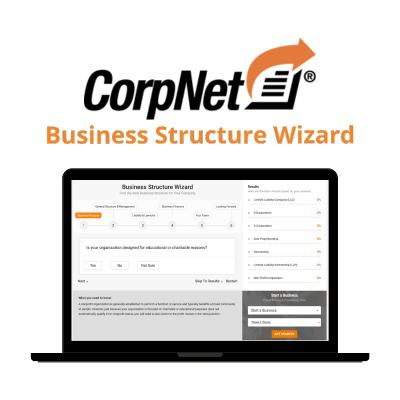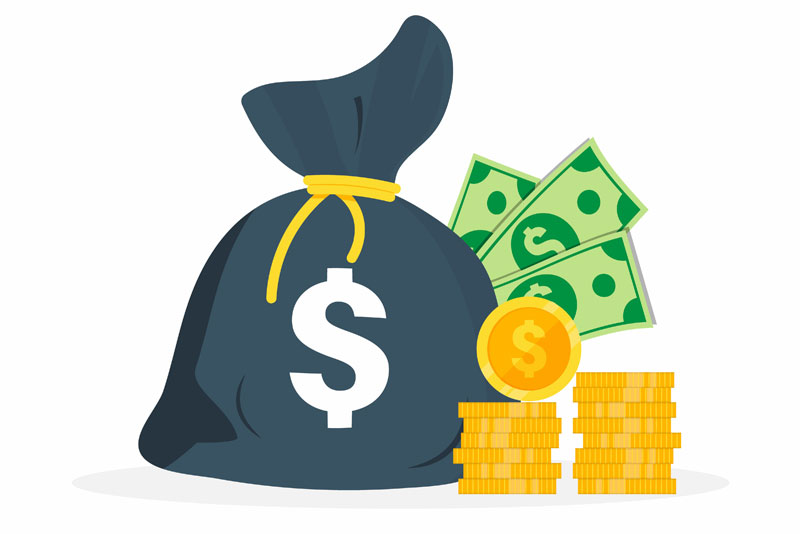As a small company, CorpNet understand the challenges small businesses face, especially in an uncertain economy. However, entrepreneurs are resilient and remain the country’s economic backbone. Small businesses account for 99.9% of all businesses in the United States and employ 61.7 million Americans, which accounts for 46.4% of private-sector employees.
Over the years, we’ve helped thousands of small business owners start and grow their companies. New business owners have lots of questions, business terminology can be confusing, and they frequently wonder about the true revenue potential of starting a small business.
In today’s post, I’d like to tackle some of the common questions entrepreneurs have about small business revenue and what they can expect to make in their new venture.
What Is Revenue?
First, it’s crucial to understand the difference between revenue, profit, and income when talking about small business revenue.
- Revenue is the same as sales. It’s the total income a company generates from its normal business activities, such as selling products or services.
- Profit is the net amount you have left after deducting expenses from revenue.
- Income is the amount left minus the costs of doing business (depreciation, interest, taxes, and other expenses).
Essentially, revenue is the company’s top line (since it sits on the top line of the income statement). Revenue includes discounts and deductions for returned goods but does not include operating expenses.
Typically, a company earns two types of revenue: operating and non-operating. Total revenue income consists of both,=.
- Operating revenue (or sales revenue) comes from a company’s primary activity. For retailers, that would be the number of units sold times the per-unit price.
- Non-operating revenue comes from activities that include interest, royalties, and other secondary sources of income.
Although revenue indicates how well your business is doing relative to sales, it doesn’t take the costs associated with running the company into account.
Average Small Business Revenue
Many factors influence average small business revenue, including:
- Industry trends
- Business location
- Experience of the entrepreneur
- Number of employees
- Length of time in business
- Community support
For a sole proprietor (single owner with no employees), the average small business revenue is around $44,000 per year. And statistics show that the average small business revenue increases as the number of employees rises. For instance, the average small business revenue leaps to $387,000 for businesses with one to four employees. Companies with average small business revenues of $1 million typically have at least five to nine employees.
Businesses owned by men have an average small business revenue of $675,643, whereas those businesses owned by women have an average revenue of $475,707.
Profitable Industries for Startups
As noted above, your industry can play a role in determining your average small business revenue and profits.
- Pet Services – Average net profit margin of 40% (grooming, pet-sitting, and dog-walking)
- Home Cleaning Services – Average net profit margin of 28%
- Event Management – Average net profit margin of 20%
- Information Technology – Average net profit margin of 16.62%
- Retail Distribution – Average net profit margin of 16.5% (intermediaries between manufacturers and retailers)
- Real Estate – Average net profit margin of 12.67%
- E-commerce – Average net profit margin of 10%
- Home Improvement -Average net profit margin of 9.65%
- Dining – Average net profit margin of 9.28%
- Building Supply Retail – Average net profit margin of 8.67%
Small Business Salaries
Although many new business owners plan to skip taking a salary until the company gets off the ground, the Internal Revenue Service (IRS) expects you, at some point, to pay yourself reasonable compensation. This depends on several factors, such as duties performed, the cost of living, and industry data.
If you’re unsure of what your salary should be, the U.S. Bureau of Labor Statistics offers nationwide comprehensive wage data, searchable by occupation and comparable wages by state, region, and city.
Here are some statistics on small business salaries::
- The average salary for small business owners is $69,301.
- Small business owners in Dallas, Texas, earn an average of 332.9% more than the national average.
- Other top owner salary locations include Boston, MA (78.6% more) and Chicago, IL (51.2% more).
- The lowest salaries can be found in Los Angeles, California (63.9% less than the national average) and Seattle, Washington (12% less).
There is no way to know how long your startup will take to reach the average small business revenue for your industry, but creating a business plan outlining a comprehensive roadmap for success is always a good move. And when you’re ready to actually get started and looking for advice on business structure, CorpNet is here and ready to help.

Choosing a business structure can be a tough decision for the new business owner. CorpNet wants to make the process easier.
This free, online tool helps small business owners navigate the process of picking the right business structure for their new business.
References:
https://advocacy.sba.gov/2023/03/07/frequently-asked-questions-about-small-business-2023/
https://www.forafinancial.com/blog/small-business/average-small-business-revenue/
https://finance.yahoo.com/news/10-most-profitable-small-businesses-064319111.html
https://www.bls.gov/bls/blswage.htm
https://www.payscale.com/research/US/Job=Small_Business_Owner/Salary





